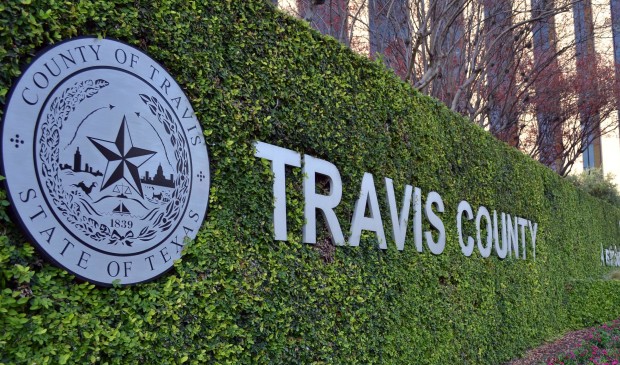In search of the best ‘yes’ for indigent defense
Wednesday, February 20, 2019 by
Ryan Thornton In the search of a best path forward, Travis County is at risk of losing momentum toward better indigent defense if the various interested parties can’t find a middle ground.
The county’s Indigent Legal Services work group has composed a draft letter indicating their intent to apply for a Texas Indigent Defense Commission grant in May, but the Commissioners Court is concerned that moving too fast could be a mistake. In a briefing by work group Chair Amanda Woog Tuesday afternoon, County Judge Sarah Eckhardt said that the county needs to prioritize building trust and partnership over the short-term hope of an application for a grant submitted before its upcoming deadline.
“We have a lot of opportunity here and I don’t want to slow your roll, but we also need to build some trust,” Eckhardt said. “We have a lot of good people who are really trying to get us to yes, the only argument is over which yes, how fast, and what the details are.”
Since TIDC presented the results of a study examining the feasibility of creating a county public defender office in October 2018, the court has been pressing forward at an aggressive pace to determine how it could be done. Per TIDC’s recommendation, the court’s first step was to establish a work group comprising representatives from public and private defense, recipients of county criminal defense, and academic criminal justice experts.
The group was finalized in December and soon began meeting on a weekly basis to hash out how the county can improve its managed assigned counsel and how a public defender office could help take some of that burden off of the Capital Area Private Defender Service, which currently manages 100 percent of county indigent defense cases. That multifaceted charge also involves a change to the broken fee structure of managed assigned counsel, which is believed to lower the quality of indigent defense by compensating attorneys equally whether their clients accept a plea bargain or are found innocent after trial.
An attorney herself, Eckhardt is adamant that the county address indigent defense in a concentrated effort rather than focusing on one piece at a time. Before the court makes any edits to the ILS draft letter, she said she wants to meet with a small group of judges and representatives from the defense bar, CAPDS, and the ILS group over the next week to discuss what compromises can be made to get everyone on board.
Among other concerns from the legal community, Woog said she received a letter on Friday from Judge Brenda Kennedy objecting to the work group’s draft letter on the grounds that a full proposal is not outlined in the letter and is not ready to be submitted to the TIDC. If the county wishes to apply for the TIDC grant this year, the work group needs to acquire the approval of Travis County judges by March 11, when the letter of intent to apply for the grant is due. Roger Jefferies, county executive of Justice and Public Safety, said that the group has not yet had enough time to develop a full proposal.
Eckhardt said she also wants to meet with Planning and Budget staff this week to determine what the indigent legal services budget reserve will need to look like in order to make progress on these goals beginning this year. The county expects that the improved legal defense could save money in the long term by keeping clients out of jail but in the short term it would be a significant investment.
Due to those financial constraints, TIDC has proposed that the public defender office take on only 30 percent of indigent defense cases after implementation. But even that figure will require hiring an additional 66 county employees and more county work space. “We are not going to be able to wave a magic wand and go into a full-blown 30 percent public defender’s office in a year,” Eckhardt said. “There is no way; we would starve a bunch of other extremely important programs.”
The question at this point is whether to move forward with the grant application this year or follow a slower path. Noting that the TIDC grant would expire after four years no matter what, Eckhardt said that it could be a better long-term financial choice to wait and ensure that the proposal is fully developed and feasible.
The court will be taking up the draft letter over the next several weeks and will either approve or reject it on Tuesday, March 5. Eckhardt emphasized that it does not mean the work group has failed if the court isn’t ready to approve the letter on that date. “If we’re not ready yet by the fifth, the work does not end and that doesn’t mean there are not things that can be done without moving forward with the grant.”
Commissioners Jeff Travillion, Brigid Shea and Margaret Gómez all supported Eckhardt’s call to slow down and focus on cultivating camaraderie. Commissioner Gerald Daugherty was absent Tuesday.
Woog said she and the majority of the work group members are “invested in this process moving forward, whatever that looks like.”
The Austin Monitor’s work is made possible by donations from the community. Though our reporting covers donors from time to time, we are careful to keep business and editorial efforts separate while maintaining transparency. A complete list of donors is available here, and our code of ethics is explained here.
You're a community leader
And we’re honored you look to us for serious, in-depth news. You know a strong community needs local and dedicated watchdog reporting. We’re here for you and that won’t change. Now will you take the powerful next step and support our nonprofit news organization?










